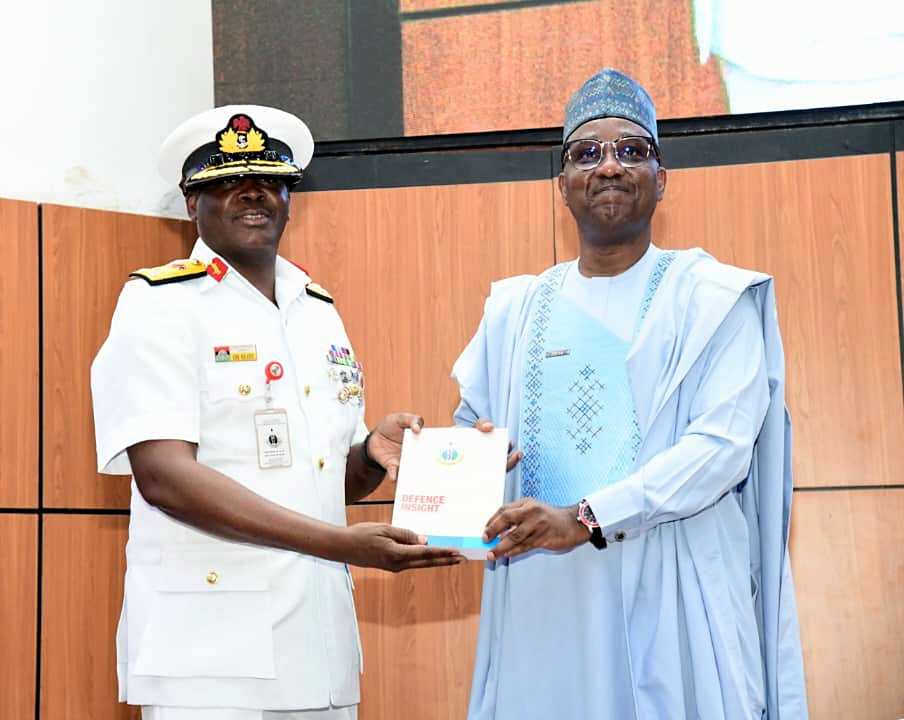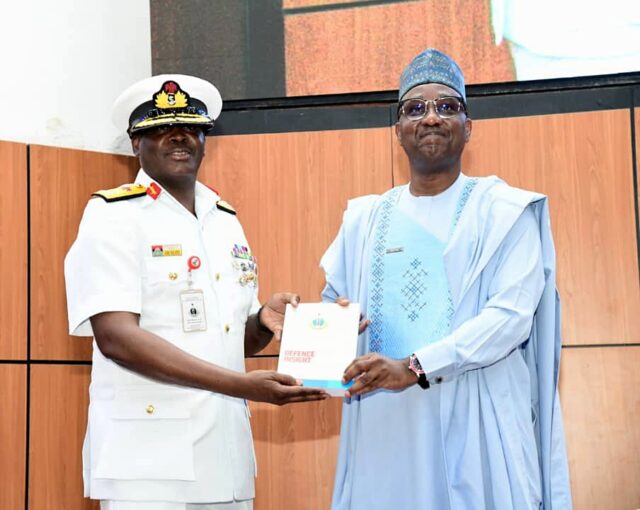By Sumaila Ogbaje
Speaker of the House of Representatives Tajudeen Abbas has advocated the building of a resilient defence system for Nigeria to curb its prevailing security challenges and their impacts.
Abbas made the call while delivering a lecture at the Royal College of Defence Studies (RCDS) engagement with the Nigerian National Defence College, Course 33, on Tuesday in Abuja.
The lecture title is: “National Resilience and Security in the 21st Century”.
He said the Nigerian armed forces and security agencies had over the years been engaged in internal security operations against Boko Haram/ISWAP in the North-East, and banditry in the North-West.
He said that other areas of the military’s operations included militancy in the Niger Delta, as well as maintaining external defence.
According to him, strengthening military resilience could involve several aspects, including ensuring that bases and troops are prepared for asymmetric attacks.
He said that it also involved ensuring that supply chains for defence equipment are secure, possibly through local production to reduce dependence.
“Additionally, military communications and cyber networks must be protected from hacking.
“It also means building trust with civilian populations through civil-military relations, so that in times of crisis, citizens cooperate with and support of the military.
“A poignant example is what happened at the height of the fight against the Boko Haram insurgency.
“Communities that were resilient, with local defence militias (the Civilian JTF), early warning mechanisms, and strong morale proved much harder for the insurgents to terrorise,” he said.
The speaker said that community efforts, combined with military action, helped reclaim territory and restore a semblance of normalcy in parts of the North-East.
“Local resilience feeds into military success,” he emphasised.
Abbas said that restoring security in those areas through “stabilisation” operations and improved on-ground security allowed displaced people to return and rebuild their lives.
According to the lawmaker, that is an example of security enabling resilience.
He said that Nigeria may not currently face conventional invasion threats, but it does face the risk of state collapse or large-scale instability if conflicts converged with other disasters.
“Having a resilient defence means planning for “worst-case” scenarios.
“For instance, how do we ensure continuity of government and constitutional order even if Abuja, our capital, were under attack, or if a major city like Lagos or Kaduna is struck by massive terrorism or unrest?
“This involves reinforcing leadership structures and facilities, decentralising command centres, and practising well-tested backup plans,” Abbas said.
He noted that although these steps developed behind the scenes, they substantially strengthened a nation’s resilience.
“They reassure citizens that no matter what happens, the state will endure.
“That psychological assurance serves as a safeguard against panic and chaos, which adversaries often seek to sow,” he added.
Abbas said that national resilience and national security were mutually reinforcing.
He added that they together formed the bedrock for addressing the challenges of the 21st century and safeguarding the welfare of citizens.
According to him, national strength depends on prevention, endurance, and quick recovery across all sectors to protect and empower citizens.
“Success is demonstrated by minimal loss and rapid restoration through early warning systems, economic resilience, or cyber defence, along with long-term improvements in health, education, and equity.
“A society-wide approach, supported by strong legislation and citizen engagement, will ensure that our resilience bolsters our security, and our security in turn fosters our resilience, thereby securing Nigeria’s future,” he added.
The Commandant of NDC, Rear Adm. Olumuyiwa Olotu, said the course had participants drawn from different countries, who were faced with common challenges, and threats.
Olotu said there was need for synergy for nations to overcome the challenges.
He said that the college would continue to keep its doors open to all Nigeria’s friends and partners, not just in Africa, but around the globe. (NAN)












